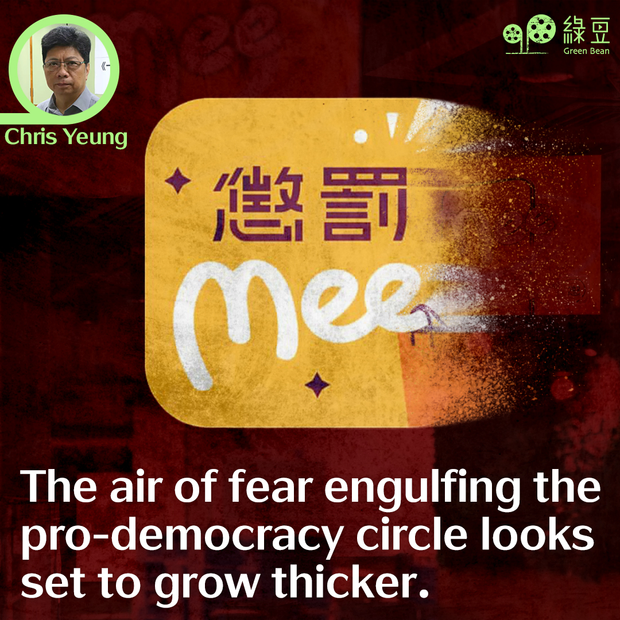Hunt for HK activists goes global

Just one day after the Hong Kong Police offered a bounty of HK$1 million for each arrest of eight wanted activists who were said to have violated the national security law, they arrested four ex-members of a pro-democracy group on Wednesday (5/7) for allegedly raising funds for one of the wanted persons, Nathan Law.
The police action is a swift move to silence critics who have dismissed the offer of police bounties on Tuesday as “a political show”.
Put together, last week’s dual police moves signal the beginning of a new operation to curb the activities of pro-democracy leaders overseas who have allegedly endangered national security.
Also importantly, it has sent a clear and loud message that the national security law, which has taken effect for three years after July 1, 2020, will still be enforced without any leniency nor laxity.
The opposite is true. Chief Executive John Lee has vowed to hunt the wanted activists around the world. Although the likelihood of their return to Hong Kong to face trial voluntarily is remote, the issuing of warrants plus offer of bounties have paved the way for the arrests in Hong Kong on Wednesday.
On Wednesday, the Police’s national security department said they arrested four men, aged 26 to 28, who are suspected of receiving funds to support people who have fled overseas and have continued to engage in activities that endanger national security.
The four were allegedly receiving money from “operating companies, social platforms and mobile applications”. Media reports said one of them was a former chairperson of the defunct group Demosisto, Ivan Lam. One of the core leaders of Demosisto was Nathan Law, who fled the city after the 2019 protests.
The other seven wanted persons are ex-lawmakers Ted Hui and Dennis Kwok; activists Anna Kwok, Elmer Yuen, Mung Siu-tat and Finn Lau; and solicitor Kevin Yam. They face similar accusations of subverting the central government and colluding with foreign forces.
Security minister Chris Tang has said they have collected evidence of the wrongdoings of the eight persons and will submit them to courts when they are put to a trial.
Although a trial of the eight activists may never take place, the police action against them could give justifications over the arrests of the four ex-Demosisto members. As of Thursday, they have not been formally charged. But formal charges look certain. They are likely to face months of detention while waiting for a formal trial.
Whether they will be convicted of the national security-related charges if they are formally laid by the Government is too early to tell. But one thing is certain. Their ties with Nathan Law and funding for him, if any, will be cut.
It will not come as a surprise if there are more arrests in Hong Kong to come in connection with the eight wanted persons.
Last week’s police action could be the curtain-raiser of an intensified government battle against Hong Kong activists overseas who are deemed to have endangered national security. It will no longer be a mere war of words. Police and legal actions will be taken as long as they are legally viable. The arrests of four ex-Demosisto members is one of which.
For obvious reasons, it is unclear whether those activists who are now in de facto exile are still getting support from some people or groups in the city and, if yes, how.
Following last week’s arrests, those activities, if they exist, have become highly risky. Fears of being targeted for connections with any vulnerable people and groups overseas may prompt more people to sever those ties privately to avoid trouble.
The air of fear engulfing the pro-democracy circle looks set to grow thicker.
That said, the fresh police drive to rein in Hong Kong activism overseas is not likely to deter the activists from voicing out their views on Hong Kong overseas.
But the deterrent effect may become more apparent locally, in particular among some sectors such as the media. The problem of media self-censorship may grow worse.
At the international front, the government’s hardball tactics have drawn strong feedback from major Western countries including the United States, Britain and Australia – as expected.
Already ladened with tension, relations between Hong Kong and those countries are not likely to see major improvement in the short term. The wanted persons will continue to be a source of friction between Hong Kong and those nations.
Coming amidst fresh attempts by Beijing and Washington to ease tensions ahead of a possible summit between their leaders later this month, the police action has raised the sensitivity of the Hong Kong issue and added more, arguably unwanted, complexities to relations between China and the US.
▌[At Large] About the Author
Chris Yeung is a veteran journalist, a founder and chief writer of the now-disbanded CitizenNews; he now runs a daily news commentary channel on Youtube. He had formerly worked with the South China Morning Post and the Hong Kong Economic Journal.